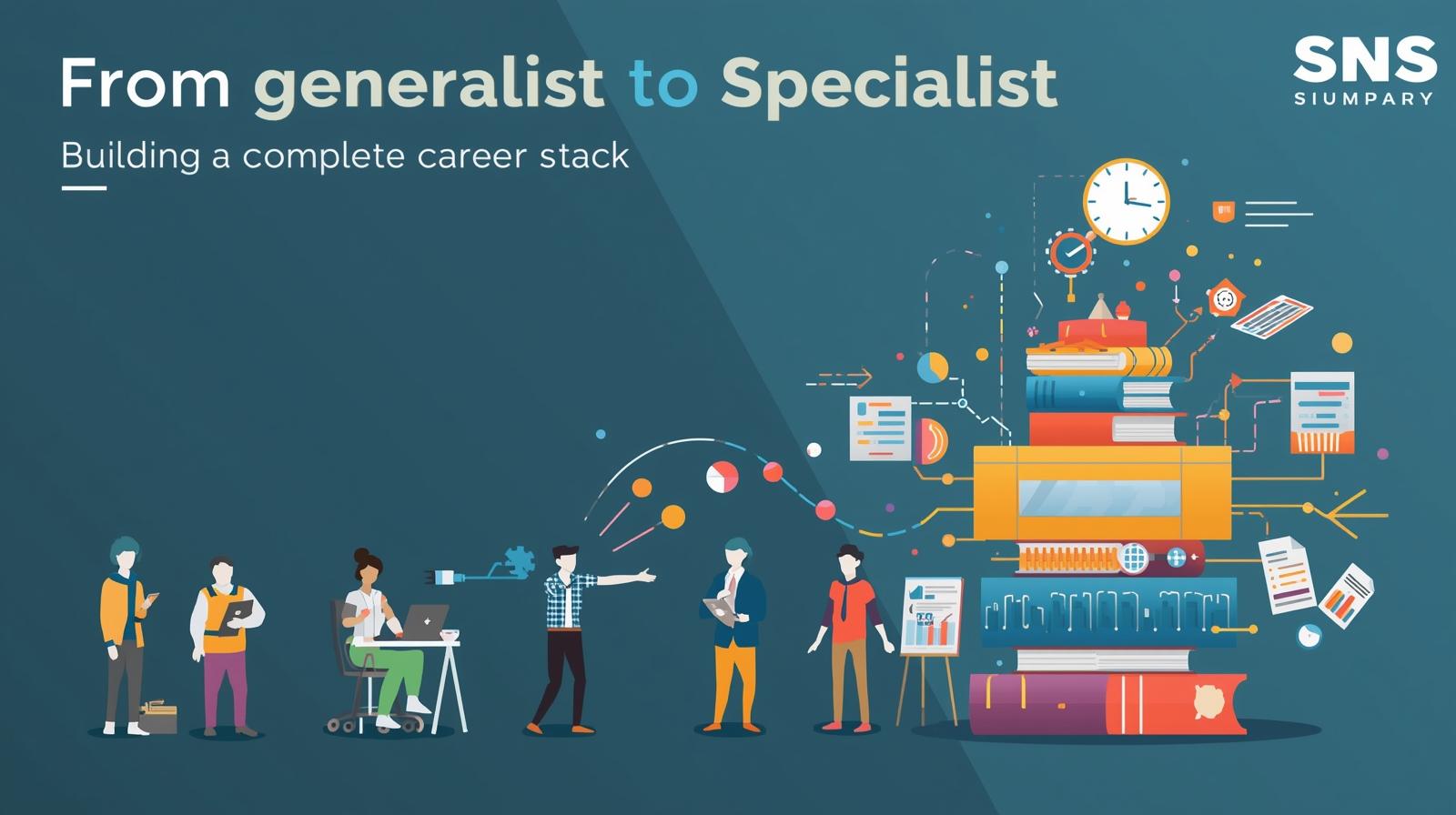
Career paths are no longer straight lines. Instead, professionals today move through winding routes—trying out multiple roles, learning varied skills, and gradually stacking expertise in a way that makes them uniquely valuable. This journey from being a generalist to a specialist has become one of the most important strategies for building long-term career resilience.
Why Generalists Thrive First
At the start of a career, being a generalist often works in your favor. You get exposure to multiple functions, industries, and work environments. For example, fresh graduates who work in rotational programs or startups quickly understand marketing, sales, finance, and operations, even if not at a deep level.
Generalist roles help you:
- Discover strengths and interests before committing.
- Develop adaptability across industries.
- Build strong problem-solving foundations.
Yet, staying a generalist forever may limit growth. Organizations reward those who can go deeper in a domain and create measurable impact.
The Transition to Specialist
Becoming a specialist doesn’t mean abandoning versatility. It means stacking expertise on top of your generalist base to stand out in a competitive market. For example, a generalist in digital marketing may choose to specialize in SEO or performance marketing. Similarly, a finance graduate may carve a niche in fintech or sustainable finance.
Specialists gain:
- Higher credibility in their niche.
- Better salary potential due to expertise scarcity.
- Opportunities to lead projects requiring domain depth.
Building a Career Stack
The concept of a career stack combines breadth (generalist skills) and depth (specialist expertise). Professionals who deliberately build a stack can transition smoothly as industries evolve. The key is to view skills as building blocks that complement one another.
Here’s a simple comparison of Generalist vs. Specialist paths:
| Criteria | Generalist Path (Breadth) | Specialist Path (Depth) |
|---|---|---|
| Skillset | Broad knowledge across domains | Deep expertise in a focused area |
| Flexibility | Easily adaptable to different roles | Highly relevant in specific industries |
| Salary Growth | Stable but slower | Faster with niche expertise |
| Career Risks | Risk of being seen as “jack of all trades” | Risk of skills becoming too narrow |
| Best Stage to Focus | Early career or exploration phase | Mid-career or leadership roles |
Steps to Transition Effectively
- Identify your foundation: Map out your transferable skills—communication, data analysis, project management—that form your generalist base.
- Spot high-value niches: Look for emerging domains (AI strategy, climate finance, healthtech, etc.) where specialist roles are in demand.
- Stack complementary skills: Combine technical expertise with soft skills. For instance, a data analyst specializing in AI ethics can become uniquely valuable.
- Invest in credentials: Certifications, advanced degrees, or industry-recognized courses act as proof of your depth.
- Build authority: Share insights, publish content, or speak at industry events to signal your specialization.
The Future of Career Stacks
As industries change rapidly, the most resilient professionals won’t just be pure generalists or pure specialists. They’ll be specialized generalists—people who know enough across domains to collaborate effectively but also have mastery in one or two areas. This balance creates future-proof careers, whether in corporate leadership, entrepreneurship, or consulting.
A career stack is not built overnight. It’s an evolving journey, where every role, project, and learning experience adds a new layer. The smartest professionals are already stacking today for the opportunities of tomorrow.

Leave a Reply